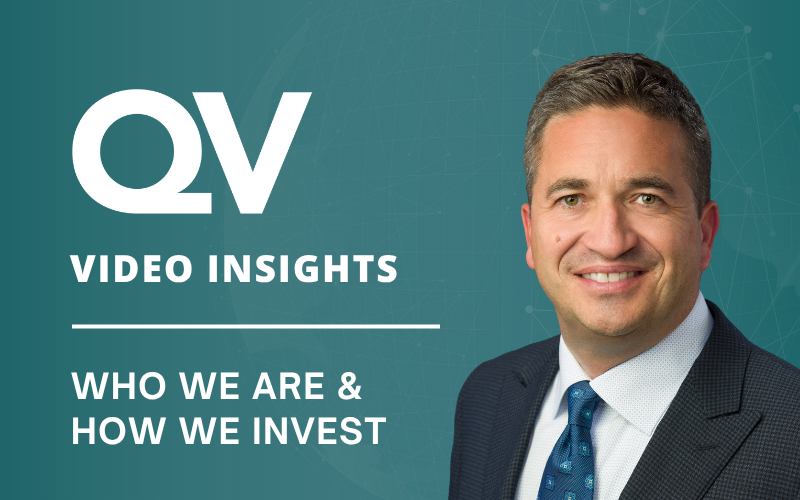As inflation, Fed, and Omicron headlines dominate the news, it is easy to lose sight of the recent good times and intentions formed for the upcoming year. One gift for which I am especially grateful is a chess set that was given to my 7-year old son by a family friend. As the enthusiasm of the holidays has worn off, the gift’s impact has lasted as we continue to spend evenings playing. It’s not yet clear which has been more valuable, the family time spent together, or the relevant and timeless investing lessons emphasized by the game.
Manage Risk – The game’s often stated objective is for players to capture the opponent’s king. However, as is quickly understood, protecting your own king is equally integral. As in investing, chasing returns (the opponent’s king) without keeping an eye on your own king (capital preservation) often ends in a loss. There are various definitions and kinds of risk, including volatility, deviations from benchmarks, fear of missing out, complacency, and, by QV’s definition – risk of permanent capital loss. In our view, being vigilant of both market and portfolio risks taken will assist in “protecting the king” or clients’ capital. In our various pooled funds, we are pleased that long-term debt to equity and next-year price to earnings ratios were stable to improved over the past year, reflecting lower balance sheet and valuation risk profiles. Although loss aversion can be a behavioral bias, in some respects it can be healthy if clients desire capital preservation and compounding. The simple math of a 50% loss requiring 100% appreciation and a 75% loss requiring 300% appreciation to break even on a profit and loss statement is therefore top of mind.
Consider Both Risk & Reward – As a novice, successful chess play requires accurate assessments of risk & reward. Although capturing a low value opponent might seem attractive in the short term, exposing a high value piece to loss should give one pause to consider the bigger picture. One must also accept that some tactical losses will be inevitable and it’s the preponderance/weighting of consistent intelligent decisions that will result in favorable outcomes. A simple but critical question, when the temptation to focus on calendar or period returns emerges, could be to ask retrospectively how much risk was taken. Or, prospectively, how much risk is being taken to generate a given return estimate for a security or asset class. Ben Graham captured it perfectly when he said, “The essence of investment management is the management of risks, not the management of returns.” For example, Canadian Western Bank continues to be a significant weight within the QV Canadian Small Cap Strategy due to attractive risk & reward. We are attracted to both its historic earnings growth profile of 6%/annum over the past decade and its 3% dividend yield. In the medium term, we believe it is capable of generating better results due to heavy investments in recent years. The company has consistently managed credit well over a full business cycle and currently trades at financial crisis levels. Geographic exposure has improved significantly and funding sources have also been diversified. Each of these reflects reduced risk.
Dynamic Process – One morning, I had a chuckle as my son told me he played against himself and “won”. In chess, as in investing, the process is dynamic with other players’ actions impacting the overall decision-making process. This is crucial as successful investors achieve a balance of adhering to first principles while also adapting and investing into what the market offers up. If a high quality company is overbid given the market’s whims, avoiding or reducing exposure could be the correct action. Conversely, perhaps a company has stumbled repeatedly, and the overall industry has gone through difficult times; the market could be pricing the company in a circumspect and well-informed investor’s favor. While I had a chuckle, discounting the notion of “winning” against oneself might not be wise either. Knowing your strengths and weaknesses and controlling biases by improving each year will ultimately further capital growth.
Play with Integrity – During our play, my son had to be reminded of the rules, fair play and integrity. Performance is “king” in this industry, but the “how” it is achieved matters too in the long run. It was disappointing this week to hear Federal Reserve Chair Jerome Powell stating, “We’ve really made a complete change in the way we govern purchases and sales of securities,” in response to suspect transactions involving some Fed officials in 2020. This highlights the importance of not just playing by the rules, but staying far enough away from the line. At QV, we and our families are invested right alongside clients, supporting alignment and accountability.




